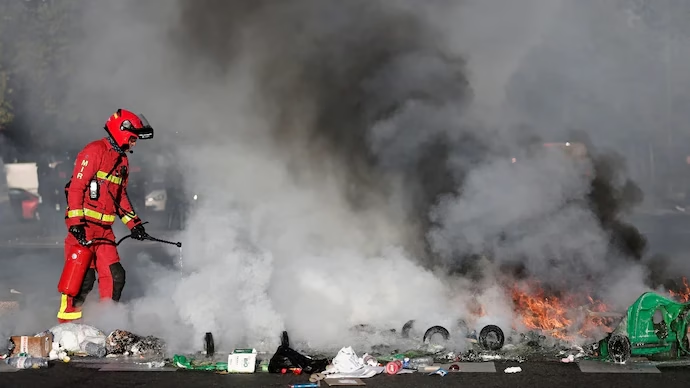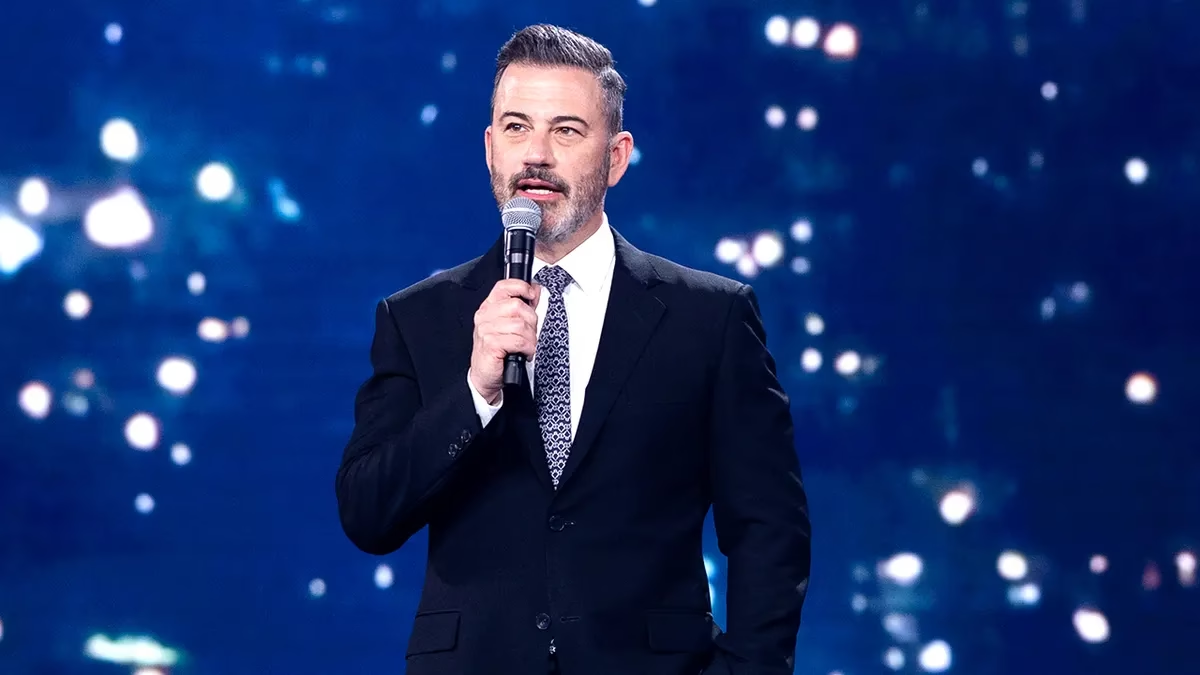
Sébastien Lecornu’s first day as France’s Prime Minister turned into a crisis as massive nationwide protests erupted under the defiant slogan “Block Everything.” Demonstrators flooded streets across major cities, clashing with police and disrupting public life in one of the most significant civil unrest movements in modern French history. By evening, authorities had arrested over 200 protesters, as the nation stood at the brink of political turmoil.
Protests Ignite Across France on PM Lecornu’s First Day
From Paris to Marseille, Toulouse to Lyon, demonstrators took to the streets early Wednesday morning, driven by anger at the government’s latest austerity measures and deep dissatisfaction with the political establishment. Protesters set up roadblocks, ignited fires, and clashed violently with law enforcement, forcing local authorities to deploy an unprecedented 80,000 police officers in a desperate attempt to restore order.
The French Interior Ministry reported over 800 protest actions throughout the day. Labor union CGT, one of the protest organizers, claimed that 250,000 people participated in demonstrations nationwide. In contrast, the government estimated a slightly lower turnout of 200,000 protesters. The scale of the unrest overwhelmed the police in several locations, particularly around the Paris beltway, where traffic came to a standstill due to massive roadblocks and fires.
What Sparked the Uprising?
The turmoil comes on the heels of political instability triggered by former Prime Minister François Bayrou’s resignation after losing a parliamentary confidence vote. Bayrou’s administration faced fierce backlash over new austerity policies aimed at cutting public spending amid rising national debt.
President Emmanuel Macron appointed Sébastien Lecornu, a relatively lesser-known political figure, as the new Prime Minister in hopes of calming the political storm. However, the appointment failed to appease the public. Protesters view Lecornu as part of the same political elite they blame for years of economic hardship and systemic neglect.
One demonstrator, Claire Dubois, a school teacher from Lyon, expressed her frustration:
“We are tired of broken promises. The government only cares about corporations and the wealthy. We demand real change, not just a new face.”
Intense Confrontations with Law Enforcement
Protesters did not hold back. In Paris, demonstrators blocked major thoroughfares, including the Boulevard Périphérique, and set tires ablaze, creating dense smoke that turned parts of the city into a war zone. Police responded with tear gas, water cannons, and mass arrests in an effort to disperse crowds.
By the end of the day, over 200 people were arrested, with many facing charges of vandalism, unlawful assembly, and assault against officers. Several journalists reported injuries while covering the unrest, and multiple public transport lines experienced severe delays, leaving commuters stranded.
The Political Fallout
Analysts warn that the protests reflect a deepening crisis in French politics. “This isn’t just about austerity; it’s about the erosion of public trust in institutions,” says political expert Dr. Émile Laurent of Sciences Po University. “The ‘Block Everything’ movement represents a spontaneous grassroots uprising that cuts across political ideologies.”
Government officials, meanwhile, urged calm. Interior Minister Gérald Darmanin called for “restraint and dialogue,” while promising that security forces would continue to protect public safety. In a televised address, President Macron emphasized the need for “responsible governance” but reiterated his commitment to pursuing fiscal reforms despite public opposition.
A Movement Without Leaders
One striking feature of the “Block Everything” protests is the absence of a centralized leadership. Unlike traditional protests organized by unions or political parties, this movement thrives on decentralized organization. Demonstrators coordinate via social media and encrypted messaging apps, making it difficult for authorities to negotiate or suppress the movement effectively.
Local union leader Jean-Marc Fournier admitted, “The spontaneity of the protests makes them harder to control. It’s not just the workers; it’s students, retirees, and ordinary citizens fed up with the system.”
What Lies Ahead?
As night fell over France, the question on everyone’s mind was simple yet ominous: Will this unrest fizzle out, or is it only the beginning?
Experts suggest that unless the government introduces significant policy changes, the protests could continue or escalate. The looming prospect of a protracted conflict between citizens and state raises concerns about stability not only in France but across the European Union.
For now, Prime Minister Sébastien Lecornu faces a baptism by fire—his ability to navigate this political minefield will define his tenure and possibly the future of French democracy itself.



